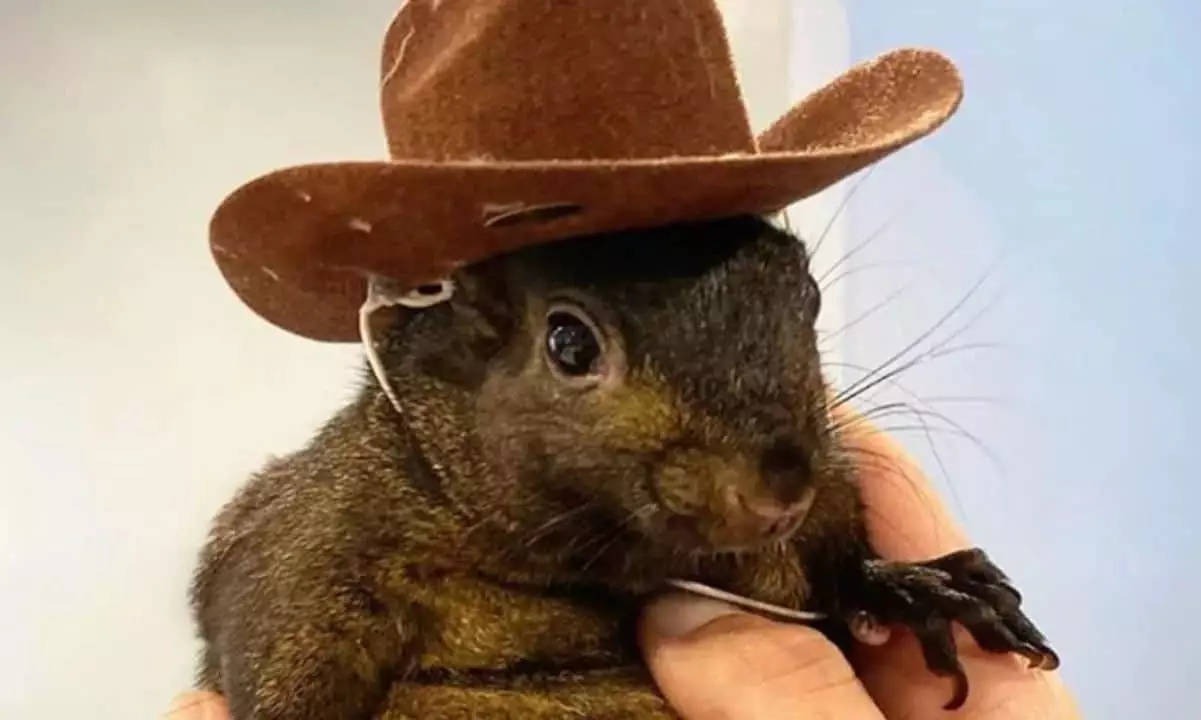The story of Mark Longo, affectionately referred to as Squirrel Dad, has recently taken a contentious turn in the legal arena. At the heart of this dispute lies the beloved Peanut the Squirrel, a rescue animal that captivated hearts and minds on social media. This unique case highlights profound questions regarding intellectual property rights, the intersection of animal advocacy and financial markets, and how quickly mournful events can morph into commercial opportunities.
Peanut, or P’Nut, embodied the dual nature of fame: a rapid ascent into the spotlight followed by a heartbreaking conclusion. Rescued by Longo in 2017, this eastern grey squirrel amassed a significant following through the “P.NUT Sanctuary” Instagram account, showcasing a combination of charm and mischief. However, tragedy struck on October 30, 2024, when the New York State Department of Environmental Conservation seized the animal due to rabies concerns, ultimately leading to its euthanization. This event could have been a somber tribute to the meaning of compassion that Longo championed, but it quickly transformed into a legal battle over the very essence of Peanut’s brand.
Longo’s recent allegations against the well-known cryptocurrency exchange, Binance, bring into question the ethical practices within the rapidly evolving digital finance ecosystem. He claims that Binance has unlawfully utilized P’Nut’s branding for various cryptocurrency services without consent. This legal maneuver illustrates how the cryptocurrency sphere can sometimes overshadow the ethical and emotional weight of personal experiences, as it generates financial gain from the legacy of a cherished animal. Longo’s assertion suggests that not only has Binance profited, but it has also inadvertently misled customers into linking meme coins, featuring the PNUT branding, with conservation efforts that Longo intended to advocate.
Longo’s cease-and-desist letter calls for immediate action from Binance, demanding that they cease any infringement activities and confirm compliance by a specified date. This part of the dispute showcases the often murky waters of intellectual property laws, especially how they apply within the context of internet culture and cryptocurrency. Longo’s claims hinge on the notion of “wrongful association,” contending that the exchange’s exploitation of the P’Nut trademark could lead to misconceptions about his conservation initiatives. He has mentioned potential damages under the U.S. Copyright Act, a strong move emphasizing the seriousness with which he regards this breach.
In the wake of Peanut’s passing, Longo launched the JUSTICE token, expressing his frustration over how the crypto community appeared to capitalize on his grief. While this new cryptocurrency garnered initial attention, it experienced a rapid decline, reflecting the volatile nature of digital assets. In contrast, the original PNUT coin surged following its launch, demonstrating the unpredictable dynamics of the meme coin market. This ongoing saga serves as a sobering reminder for both creators and investors alike of the delicate balance between commerce and compassion.
As the situation develops, Longo’s small-scale conservation efforts and legal claims underscore the broader implications of branding in the digital age, highlighting the need for clearer guidelines regarding intellectual property amid the growing influence of online culture. As of now, the outcome of this complex legal battle remains uncertain, but it undoubtedly poses crucial questions for the future of animal advocacy in the financial landscape.
















Leave a Reply